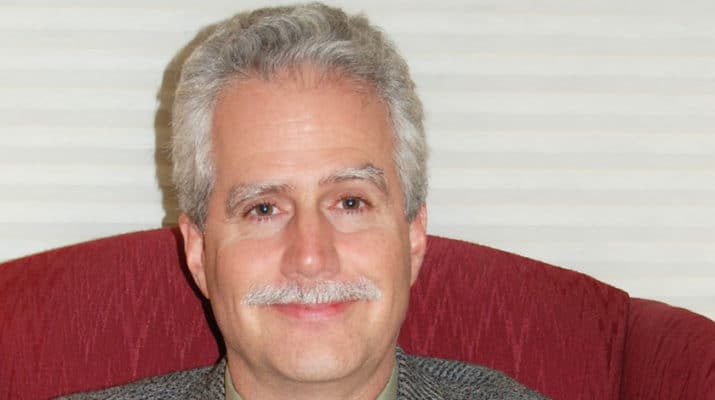Experts say technology doesn’t replace the need for face-to-face interaction, but it’s helpful during pandemic
By Deborah Jeanne Sergeant
Experts agree that suspending social visits to nursing homes represents an important way to reduce breakouts of COVID-19 at nursing homes.
While this can help slow the spread of COVID-19 within this vulnerable population, it severely limits the scope of social interactions available to nursing home residents.
Family members are prohibited from stopping in but that doesn’t mean that residents cannot connect with loved ones. Some are calling on the phone while standing outside to wave through the window, as you see it here. Others use Skype or FaceTime to communicate remotely.
Thomas Schur, marriage and family therapist in private practice in Syracuse, has retired from teaching at Syracuse University.
“One thing that a lot of my colleagues are dealing with is telehealth,” he said. “A lot of their patients really don’t like telehealth and would much rather meet in person. With people waving to their loved ones through the window at the nursing home, it’s similar. Some politicians have said it’s important to social distance, but not social disconnection. The question is how do you distance without leaving people alone? Will technology inhibit our ability to relate?”
He views efforts such as waving at the window or connecting through technology as better than nothing, but not as good as face-to-face interaction, especially for people who did not grow up with technology, since they’re accustomed to connecting in person.
Scott Mooney, Ph.D. and co-founder of Beacon Psychological Services LLC in Oswego, also views technology-based connection as less than ideal, but said that is connection is imperative for everyone. “If someone’s feeling isolated and feeling a lack of control, visits from loved ones can help them cope better as they visit and reminisce.”
Part of the increased need to connect stems from the maturation process.
“The older we get, the more we realize that we need fewer things and we come to appreciate what’s more important: time with others we love,” Mooney said. “Especially when people are older, they appreciate quality time. That’s valuable and reaffirms they have self-worth.”
Some nursing homes try to help residents feel more at ease during isolation by planning more time for staff to simply visit with residents and listen to them. That strategy can prove very helpful.
“They have stories to tell; I think those are important stories,” said Jodi Ann Mullen, Ph.D., professor at SUNY Oswego’s counseling and psychological services department where she coordinates the mental health counseling program and therapist at Integrative Counseling Services, PLLC in Oswego.
In addition to benefit of younger people learning about the past, the oral history is also important for those doing the telling.
“That’s a powerful and connecting experience, whether family history or general history,” Mullen said.
She said that for nursing home residents with dementia, it may be difficult to remember why family members cannot come visit. Mullen hopes that nursing home activity directors plan more events and things to do to bring pleasure to residents.
Communicating with family is essential and should not be interrupted. Matt Mallow, RN, with Caring Hearts of Rochester, works with elderly patients through home health and has worked in long-term care facilities in the past. He encourages family members to ask the staff about setting up a video chat if their relative needs help with the technology.
“Talk with the activities director,” he said. “The aides and nurses are so short on time taking care of the clients.”
“The older we get, the more we realize that we need fewer things and we come to appreciate what’s more important: time with others we love.”
Scott Mooney, Ph.D. and co-founder of Beacon Psychological Services LLC in Oswego.

